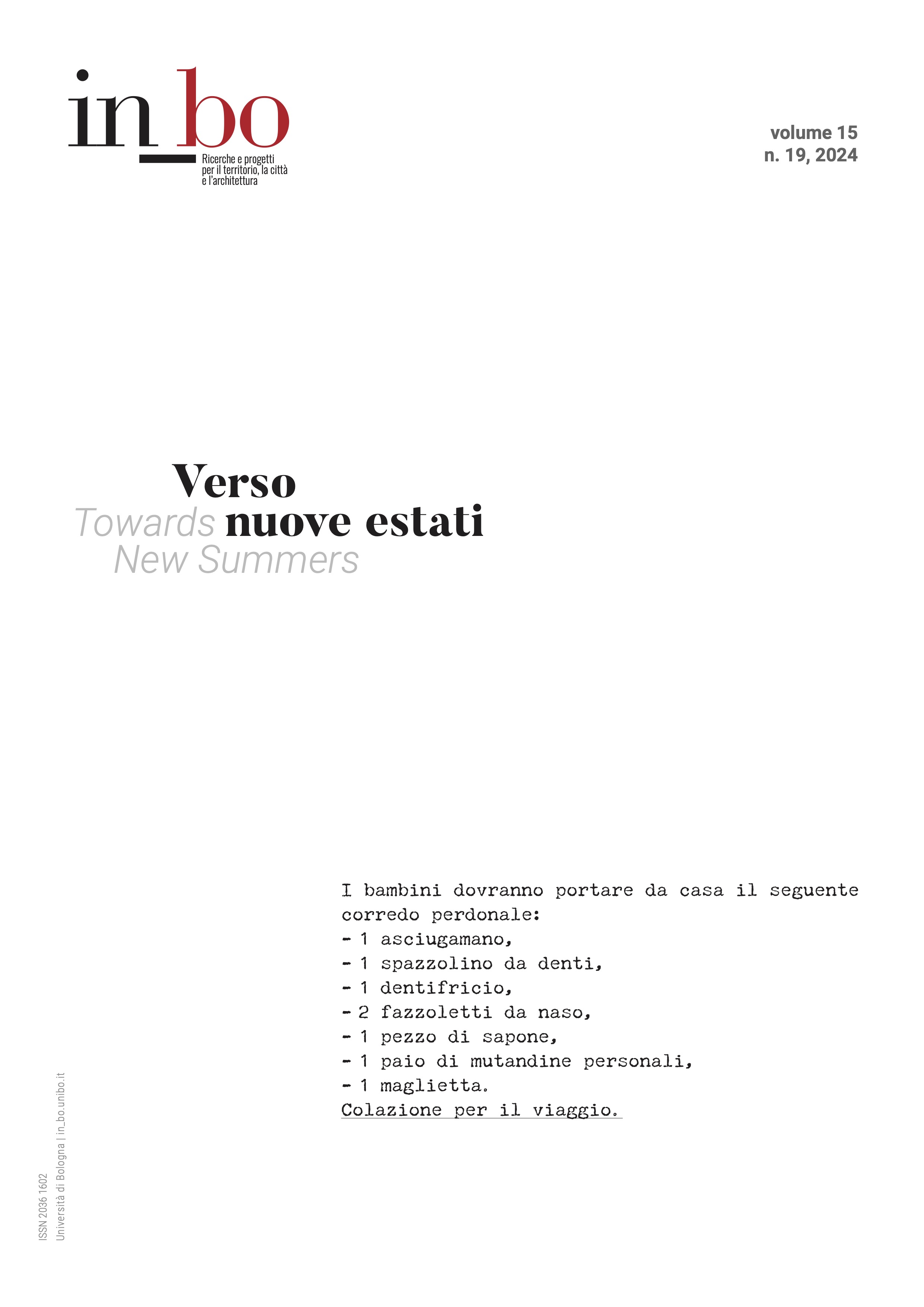A New Life for the Colonia Fara in Chiavari (Genoa): A Complex History, From Neglect to Restoration
DOI:
https://doi.org/10.6092/issn.2036-1602/16557Keywords:
Fascist colony, heritage, alienation, urban redevelopment, waterfrontAbstract
The paper scrutinizes the evolution of the uses and functions entrusted to the Gustavo Fara holiday camp in the Italian municipality of Chiavari (Genoa) from the 1930s until today. The work analyzes the historical evolution of the building from its construction to the recent revitalization, including the tourism-oriented urban transformation of the western sector of the city’s waterfront, i.e. Preli. In particular, the essay questions the re-signification of the building in relation to its complex history (Fascism, refugee center, and elementary school) and interprets the more recent events that led to the recovery and conversion into apartments and a luxury hotel. The inquiry leads to answering the following research questions: How does the building dialogue with its surroundings? Is the former holiday camp seen as a difficult heritage of the Fascist regime or only as a representative building of twentieth-century rationalist architecture? How did the recovery process take (or fail to take) into consideration the needs of the community?
Downloads
Published
How to Cite
Issue
Section
License
Copyright (c) 2024 Federico Camerin, Francesco Gastaldi

This work is licensed under a Creative Commons Attribution-NonCommercial 4.0 International License.





